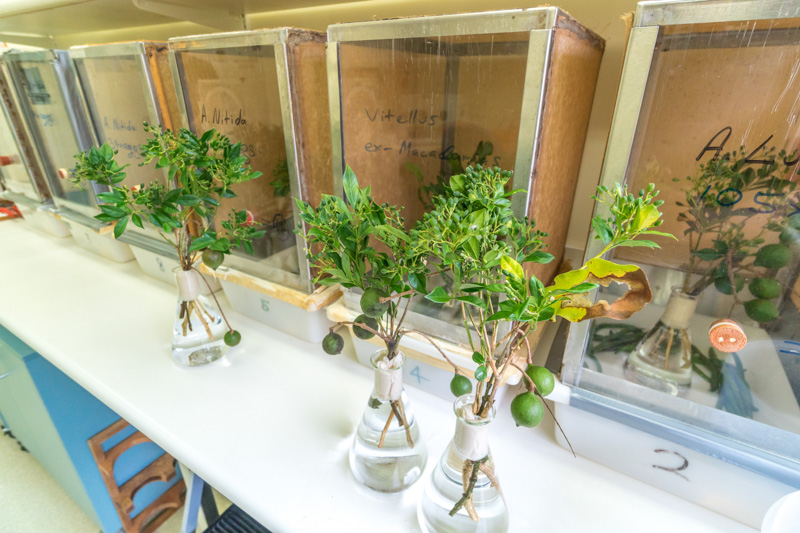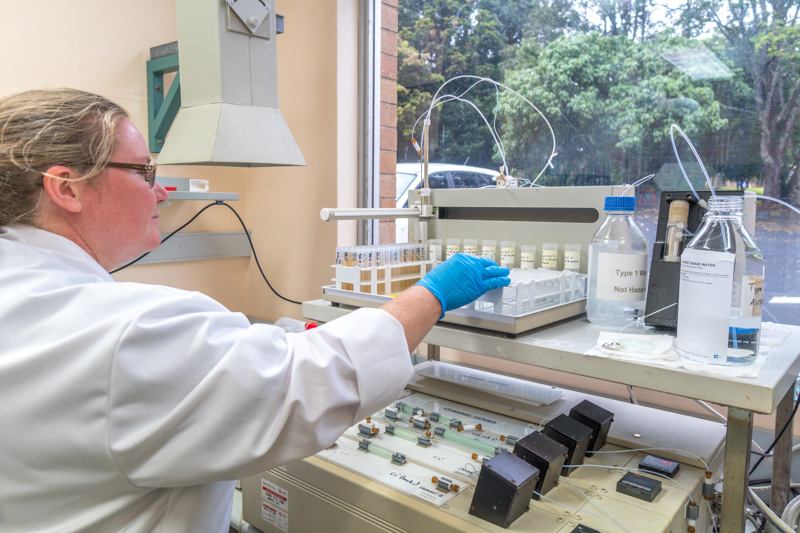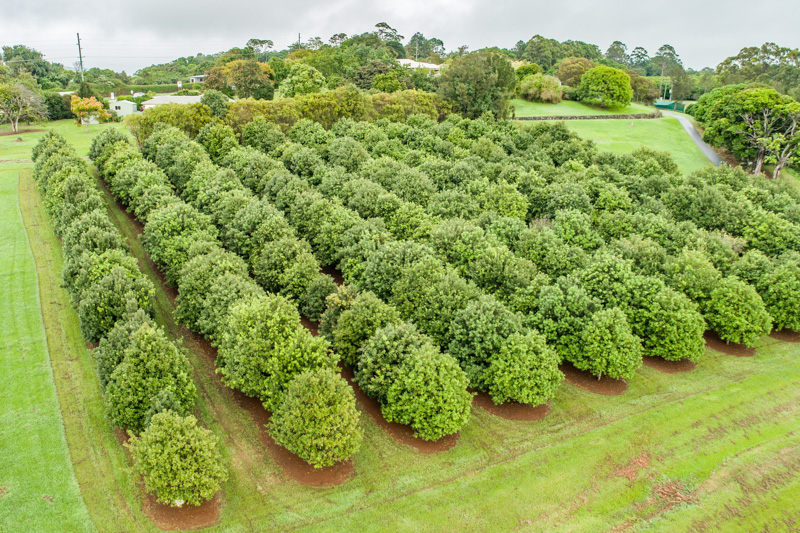
Our work
Research
Horticulture and agriculture
Supporting profitable and sustainable horticulture and agriculture through research, compliance, education and industry engagement. Well placed to assist northern NSW horticultural industries with staff specialising in entomology, crop physiology, and industry development. The team support NSW producers of macadamia, blueberries and banana in a variety of research initiatives including:
- Developing integrated pest management (IPM) programs for pest management, including monitoring strategies, cultural and biological control and screening of insecticide compatibility
- Bananas: investigating improved pest and disease resistance and cold tolerant varieties as part of a nationally coordinated program
- Macadamias: integrated pest and disease research, soils and nutrition, biosecurity and physiology
- Berries: a high-tech blueberry research facility enables scientifically tested growing formulations and recommendations regarding the timing and amount of fertiliser application to match crop demand
Pasture and cropping work are also conducted at WPII to support the agriculture industry through variety trials and evaluation, while also partnering with agencies such as Local Land Services to provide in kind support for local agricultural initiatives.

Soil and Water research
The Soil and Water Research Unit at Wollongbar conduct research on projects across several industries including grains, horticulture, cotton, and sugarcane. Much of the research work is undertaken under ISO9001:2015 certification and delivers into the NSW DPI Strategic Plan and 2050 initiatives. Key research is co-funded through the Soil CRC, Clean Coastal Catchments, Cotton Research and Development Cooperation and Sugar Research Australia.
Key project areas include:
- Leading industry development initiatives by organising webinars, training programs and social media engagement.
- Developing soils that are more resilient through improving biological function, have improved storage of carbon, and lower greenhouse gas emissions.
- Developing and evaluation of fertiliser recommendations and fertiliser formulations to improve nutrient use efficiency and minimise off-site impacts.
- Improving nutrient management in the blueberry industry to enhance the marine estate.
- The valorisation of waste to biocommodities delivers into sustainable waste management by mitigating dispoal challenges, GHG emissions and soil and water contamination whilst delivering economic and social benefits.
- Biorefining of agri-food waste residues including pretreatment, enzymatic hydrolysis and bioprocessing (fermentation).
- Development and assessment of carbon-based products from wastes that address soil constraints such as low carbon content, acidity and sodicity.
- Improving management of residual herbicides to minimise impacts on crop production and soil health.
- Providing industry support in assessing the ecological risk of chemical movement from farming systems, via water runoff, leaching and deposition from air.
Biosecurity and food safety research
DPI Wollongbar has an extensive record of involvement in research that promotes the health and economic well-being of the NSW community. This occurs through involvement in research on issues such as microbiological safety of animal products, antimicrobial resistance, and viruses that transmit between animals and humans. DPI scientists also provide expert advice at the state, national and international level to improve the management of these issues.

Soil research
The social research program conducted at Wollongbar focuses on the NSW livestock industries. Through workshops, interviews and surveys the research contributes to understanding those social factors that influence farmer decision-making and the adoption of agricultural innovations. The research also contributes to understanding the social acceptability of agricultural practices by stakeholders and the broader public.
Forestry
Plantation Regulation Unit
Plantation Officers authorise timber plantations on private and public land, giving harvest guarantee; carry out audits to ensure plantations comply with regulations; maintain a state-wide database of plantations; and provide information and support to the industry. Our clients include small landholders through to the Forestry Corporation of NSW.
Fisheries
Aboriginal Fishing and Marine and Coastal Environments
Statewide responsibilities for leading, managing and coordinating marine and coastal aquatic habitat management and Aboriginal cultural fishing including the development and implementation of legislation, policies and plans to provide for Aboriginal cultural fishing, to conserve aquatic resources and habitats in coastal catchments and deliver benefits of a healthy marine estate for the NSW community. Leading the marine estate reform program for DPI including delivery of the Marine Estate Management Strategy and the management of NSW marine parks and aquatic reserves, including engagement and cooperation with stakeholders and community groups.
Agriculture
Agricultural Land Use Planning
The DPI Agricultural Land Use Planning (ALUP) unit works to ensure that agricultural industries and the land and resources on which agriculture depend are adequately considered in all aspects of the NSW planning system.
Positive outcomes for agriculture are sought through policy, agricultural planning advice and education with a key role in reducing the potential for land use conflict.


